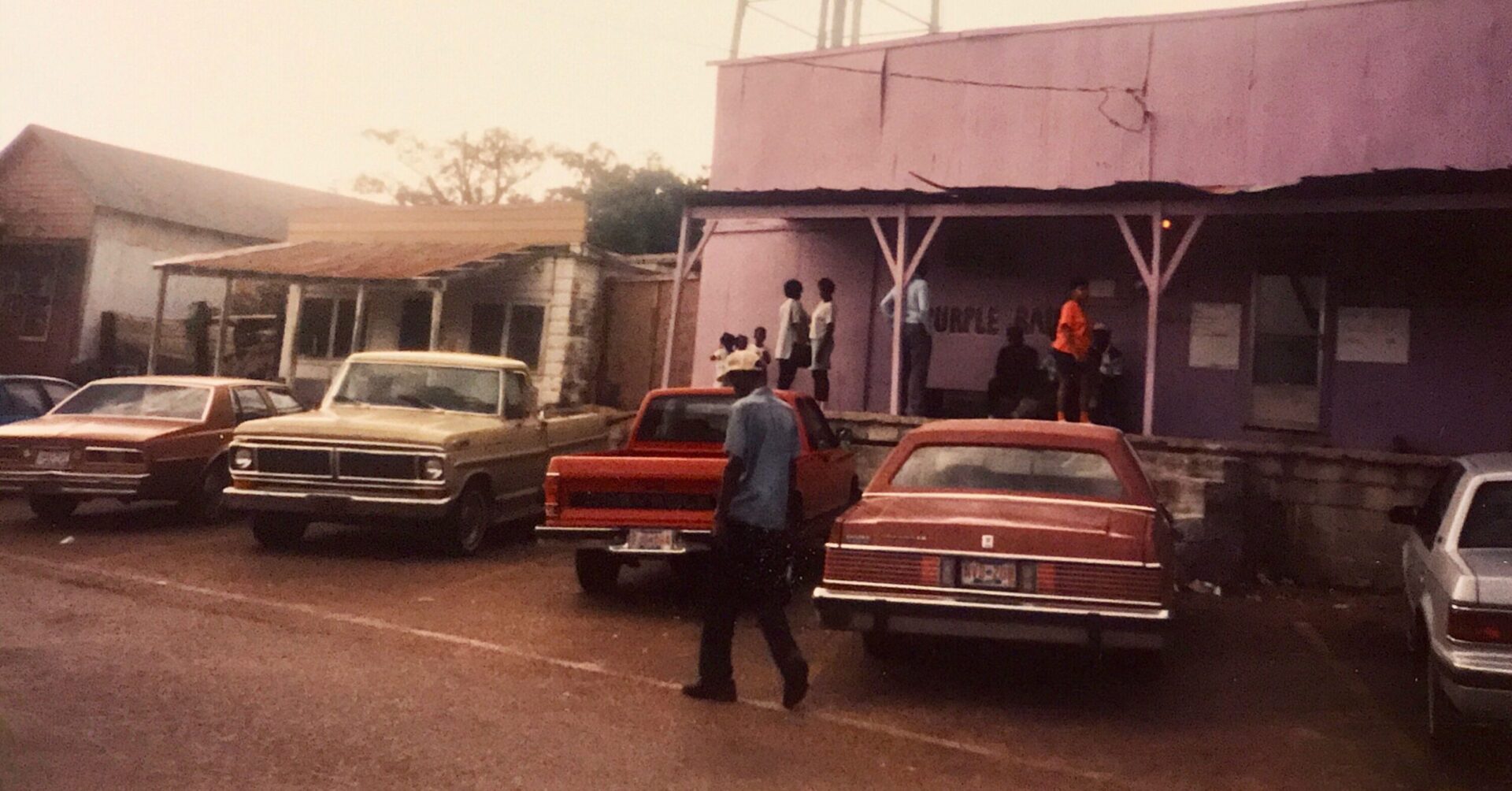Few musical experiences can compare to the raw power of African-American fife and drum music. Unfortunately, this musical style once found throughout the south is now found only amongst the members of one extended family in Panola County, Mississippi. Sharde Thomas upholds the legacy of her grandfather Otha Turner and his Rising Star Fife and Drum Band. They will be holding their annual picnic on the last weekend of August at Gravel Springs outside of Como, Mississippi.
blues
Duwayne Burnside and his band take the stage at the North Mississippi Hill Country Picnic at Foxfire Ranch, Waterford, Mississippi, June 25, 2011
Day 2 of the sixth annual North Mississippi Hill Country Picnic got under way at Foxfire Ranch in Waterford, Mississippi around 4 PM yesterday.
At the Crossroads of Blues History in Rosedale
Rosedale figures prominently in Mississippi blues lore. It is thought to be the hometown of Robert Johnson’s woman that lived “by the riverside”, and its Bruce Street was a small-town version of Memphis’ Beale Street or Jackson’s Farish Street. What is not clear is what has happened to Bruce Street. Most of the buildings are gutted, empty walls, or just foundations. As for the juke joints still standing, it seems not at all clear as to whether they are still open for business, or if they too have been abandoned. On one set of walls was spray-painted the name “Poor Eddie.” I was wondering if he had been the owner of the building before what ever happened to it happened, but I soon met Poor Eddie, who was standing with a group of men near the only joint that looked as if it might still be in business. Eddie took it upon himself to be my tour guide (expecting to be paid a little something of course), but he reconstructed the street in my mind’s eye as he named the owners of each building and what went on in them when they were up and running. In my haste to get to Greenville where relatives were waiting for me, I forgot to ask him what had happened to Bruce Street. Perhaps it was simply what had happened to the rest of the Delta-farm mechanization, extreme poverty and people moving away. All a little sad. But I gave Poor Eddie a couple of dollars for a “cold drink” and headed on down Highway 1.
Dundee, Mississippi looks a little bigger than the towns above it, and it still has an open elementary school. But this beautiful church, last used as a Masonic lodge apparently, has been allowed to fall into ruins.
Maud, Mississippi has fared no better than Clayton. Of interest is the abandoned residential house on the old Main Street next to the commercial building, which might have been a bank or a mercantile.
This large brick building marks the site of Clayton, Mississippi, another virtual ghost town, although it must be pointed out that most of these towns still have residences. It’s just the businesses and commerce that have been left to rot away.
The little Delta ghost town of Evansville, Mississippi near Tunica seems to be private property now, but this general store has been well-preserved.
Album Review: Mississippi Fred McDowell “Come And Found You Gone”
Mississippi Fred McDowell, of course, is a legend. He was one of the first country bluesmen to be rediscovered and recorded by scholars, and toward the end of his life toured across the country and overseas. Although he would claim “I don’t play no rock-and-roll music”, songs he performed like “Get Right Church” were covered by the Rolling Stones, and he guest appeared on an album with Don Nix. So for the fan of Mississippi traditional blues, the first commercial issue of these field recordings made by the eminent blues scholar Bill Ferris is a welcome discovery. McDowell’s home community of Como is stuck just where the hill country meets the Delta, and likewise, McDowell’s blues style seems to cross-breed the hill country and Delta styles. There are familiar standards here, of course, like “John Henry” and “Little Red Rooster”, but also unusual original compositions like “Dream I Went to the U.N.” where the lyrics say he went to “set the nation right.” There are also gospel tunes, including “Get Right Church”, “I Got Religion”, “You Gonna Meet King Jesus” and McDowell’s take on “Where Could I Go?” a tune that springs from the white country gospel tradition. On various tunes, McDowell is joined by his wife Annie Mae, and his friend Napoleon Strickland on harmonica. On the final track is an excerpt of an interview with Bill Ferris regarding these recordings. Extensive liner notes and photos increase the value of this lovingly-conceived issue of recordings that resurrect a voice from the grave. To listen to “Come and Found You Gone” is almost like spending an afternoon with Mississippi Fred McDowell on his front porch.
After the body of Rudy Williams, the trumpet-playing “Mayor of Beale Street” was found on Winchester Road last week, memorials to him appeared in several places along the street, particularly at the King’s Palace Cafe, where he usually played.










